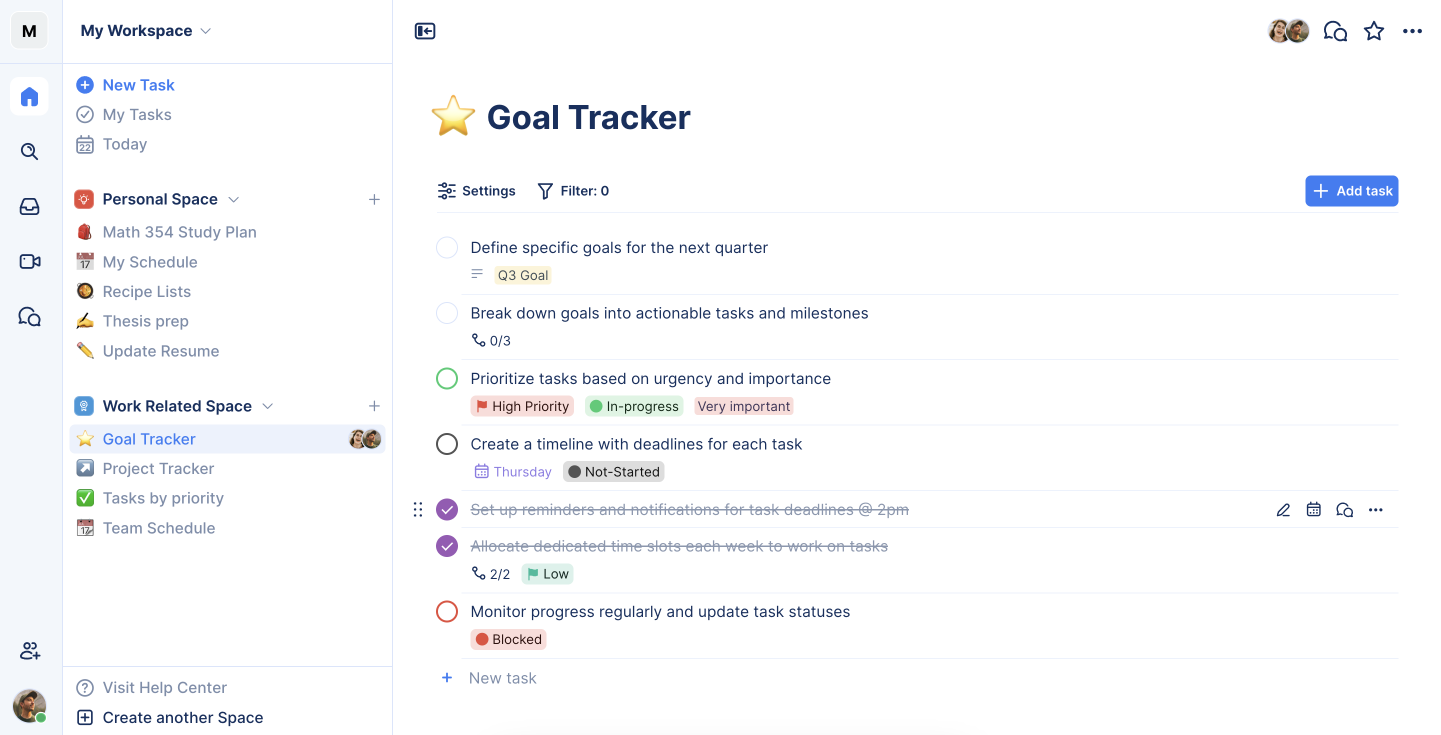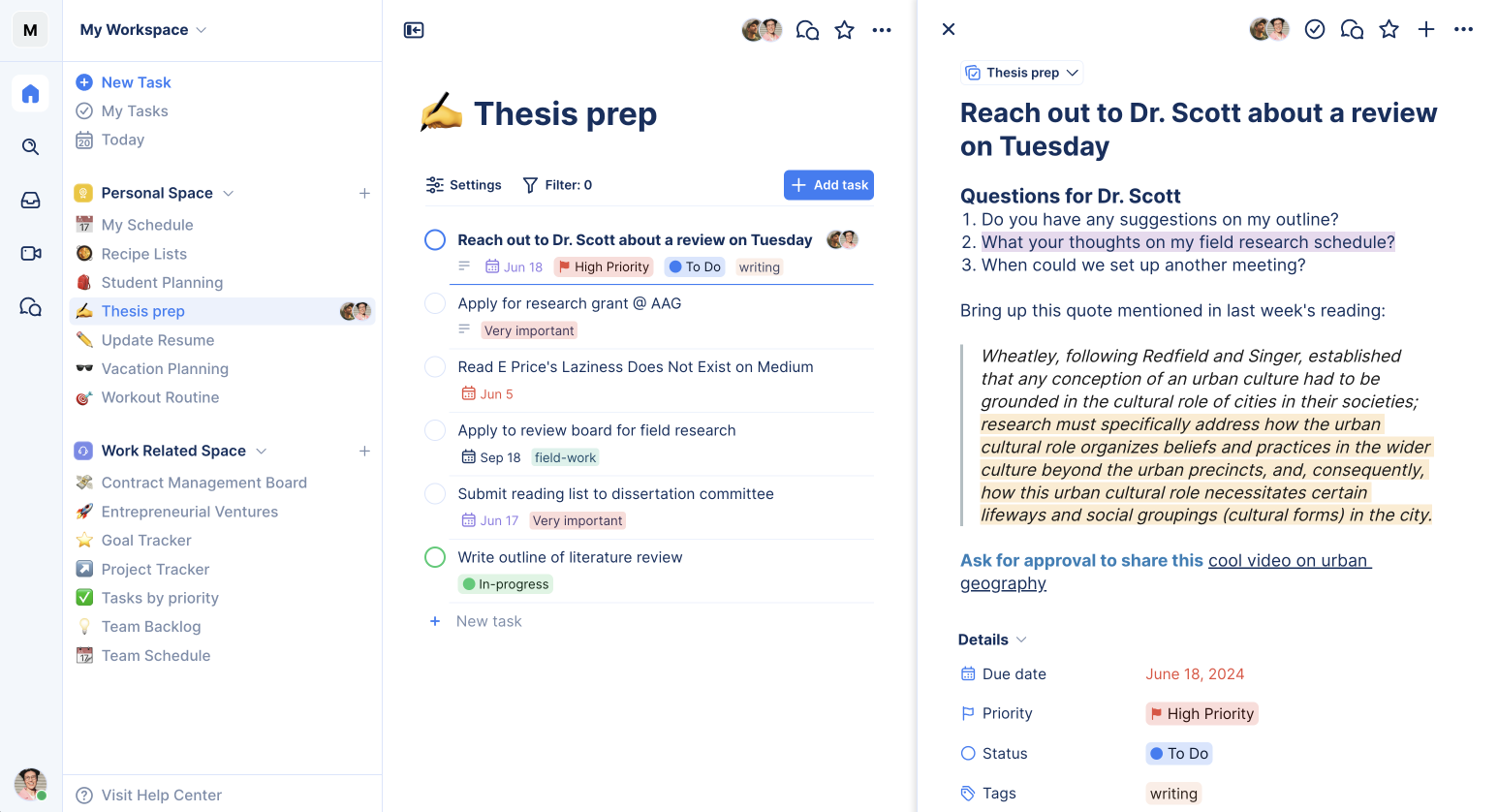Goal setting is a powerful process for thinking about your ideal future and motivating yourself to turn your vision into reality. The process of setting and tracking goals helps you choose where you want to go in life, what you want to achieve, and allows you to measure your progress along the way. In this blog post, we will explore various strategies for setting and tracking goals effectively.

The Importance of Setting Goals
Before diving into the strategies, it’s essential to understand why setting goals is so important. Goals provide direction, focus, and a sense of purpose. They help you to clarify what you truly want and create a roadmap to get there. Additionally, goals:
- Increase Motivation: Clear goals fuel your ambition and help you to stay motivated even during challenging times.
- Improve Decision-Making: Goals act as a filter for making decisions, allowing you to prioritize tasks and allocate resources effectively.
- Enhance Performance: Specific, challenging goals improve performance by encouraging you to push beyond your comfort zone.
- Provide a Sense of Accomplishment: Achieving your goals gives you a sense of accomplishment and boosts your self-esteem.
Strategies for Setting Goals
1. Use the SMART Criteria
One of the most popular frameworks for setting goals is the SMART criteria. SMART stands for Specific, Measurable, Achievable, Relevant, and Time-bound. Here’s how to apply it:
- Specific: Clearly define what you want to achieve. A vague goal like “lose weight” becomes “lose 10 pounds.”
- Measurable: Ensure you can track your progress. Use metrics such as numbers or percentages.
- Achievable: Set realistic goals that are attainable given your current resources and constraints.
- Relevant: Your goals should align with your broader objectives and values.
- Time-bound: Set a deadline to create a sense of urgency and motivate action.
2. Break Down Larger Goals
Large, complex goals can feel overwhelming and unmanageable. Break them down into smaller, more manageable sub-goals or milestones. This approach makes it easier to stay focused and track progress. For example, if your goal is to write a book, break it down into tasks like “outline chapters,” “write 500 words daily,” and “edit first draft.”
3. Write Your Goals Down
Writing your goals down is a powerful way to commit to them. It helps to clarify your thoughts and makes your goals tangible. Research shows that people who write down their goals are more likely to achieve them. Keep your written goals visible to remind yourself of what you’re working towards.
4. Create an Action Plan
An action plan outlines the steps you need to take to achieve your goals. It helps to transform your aspirations into actionable tasks. Include specific actions, deadlines, and resources needed. For instance, if your goal is to learn a new language, your action plan might include daily practice, enrolling in a course, and finding a language exchange partner.
5. Set Priorities
Not all goals are created equal. Some will have a more significant impact on your life than others. Prioritize your goals to focus on what matters most. Use tools like the Eisenhower Matrix to categorize your goals based on urgency and importance. This way, you can allocate your time and energy efficiently.
6. Visualize Your Goals
Visualization is a technique used by top performers to enhance their motivation and performance. Picture yourself achieving your goals and the positive impact it will have on your life. Visualization helps to reinforce your commitment and keeps you focused on the desired outcome.
7. Stay Flexible
Life is unpredictable, and your circumstances may change. It’s essential to stay flexible and be willing to adjust your goals as needed. If you encounter obstacles or your priorities shift, reassess and modify your goals accordingly. Flexibility ensures you remain on track without getting discouraged.
8. Seek Accountability
Accountability increases your chances of achieving your goals. Share your goals with a friend, family member, or mentor who can provide support and hold you accountable. Regular check-ins and progress updates help to keep you motivated and committed.
9. Celebrate Your Achievements
Acknowledge and celebrate your successes, no matter how small. Celebrating milestones along the way boosts your morale and reinforces positive behavior. It also helps to build momentum, making it easier to stay motivated for future goals.

Free Goal Tracker Template
Get a jumpstart with your projects & goals for free.
Strategies for Tracking Goals
1. Use a Goal Tracking Tool
Using a goal tracking tool can simplify the process of monitoring your progress. Tools like TaskOrbiter provide features such as task lists that help you stay organized and focused. Digital tools offer the convenience of accessing your goals anytime, anywhere.
2. Keep a Goal Journal
A goal journal is a personal log where you record your goals, action plans, and progress. It serves as a reflective tool that allows you to review your achievements and challenges. Regular journaling helps to maintain clarity and motivation over time.
3. Set Regular Check-Ins
Regularly review your goals to assess your progress and make necessary adjustments. Weekly or monthly check-ins help to ensure you stay on track and can address any issues promptly. Use these check-ins to celebrate successes and identify areas for improvement.
4. Create Visual Representations
Visual representations, such as charts or graphs, can make tracking your progress more engaging. Use visual tools to display your progress towards your goals. For example, a progress bar can show how close you are to completing a task, while a graph can track changes over time. Export your tasks from TaskOrbiter and create charts or graphs in your favorite spreadsheet tool.
5. Reflect on Your Progress
Regular reflection helps to maintain perspective and motivation. Take time to reflect on your progress, celebrate successes, and learn from setbacks. Reflection allows you to adjust your strategies and stay aligned with your goals.
6. Adapt and Adjust
Tracking your goals isn’t just about monitoring progress; it’s also about being adaptable. If you’re not making the progress you expected, reassess your approach. Adjust your action plans, timelines, or even the goals themselves if necessary.
7. Seek Feedback
Feedback from others can provide valuable insights and perspectives. Share your progress with a trusted friend, mentor, or coach who can offer constructive feedback. External feedback helps to identify blind spots and areas for improvement.
8. Stay Consistent
Consistency is key to achieving your goals. Develop a routine that incorporates regular goal-setting and tracking activities. Consistent effort over time leads to steady progress and eventual success.

How TaskOrbiter Can Help
Now that we’ve explored various strategies for setting and tracking goals, let’s discuss how TaskOrbiter can help you implement these strategies effectively.
SMART Goals with TaskOrbiter
TaskOrbiter allows you to create specific, measurable, achievable, relevant, and time-bound goals with ease. You can define your goals in detail, set deadlines, and specify metrics for tracking progress. This ensures that your goals meet the SMART criteria and are well-defined.
Breaking Down Goals into Subtasks
With TaskOrbiter, you can break down larger goals into smaller, manageable subtasks. This feature helps to make complex goals more attainable by focusing on one step at a time. Each subtask can have its own deadline and progress tracker, allowing you to monitor your progress in detail.
Action Plans and Task Lists
TaskOrbiter enables you to create detailed action plans with task lists. You can outline the steps needed to achieve your goals and assign tasks with deadlines. The task list feature helps you stay organized and ensures that you’re always aware of what needs to be done next.
Prioritization and Focus
TaskOrbiter’s prioritization tools help you to focus on what matters most. You can categorize your tasks and goals based on urgency and importance, ensuring that you allocate your time and energy efficiently. This feature helps to avoid feeling overwhelmed and keeps you focused on high-impact activities.
Reflection and Adaptation
With TaskOrbiter, you can regularly review and reflect on your progress. The platform allows you to track your achievements, identify challenges, and adjust your strategies as needed. Regular reflection helps to maintain perspective and motivation, ensuring that you stay aligned with your goals.
Accountability Features
In TaskOrbiter, you can collaborate with friends, family, or mentors, providing support and accountability. Regular check-ins and progress updates help to keep you motivated and committed.
Consistency and Routine
TaskOrbiter helps you to develop a consistent routine for goal-setting and tracking. The platform’s user-friendly interface and features make it easy to incorporate regular goal-setting activities into your daily routine. Consistent effort over time leads to steady progress and eventual success.
In conclusion, setting and tracking goals is a vital process for achieving your personal and professional aspirations. By using the strategies outlined in this blog post and leveraging the features of TaskOrbiter, you can enhance your goal-setting and tracking efforts. TaskOrbiter provides the tools and support needed to turn your goals into reality, ensuring that you stay organized, focused, and motivated along the way.
Visit TaskOrbiter for Personal Use to learn more about how TaskOrbiter can transform your goal-setting journey and help you accomplish your dreams. Don’t wait to take control of your future—start setting and tracking your goals with TaskOrbiter today!
Track your goals, for free
Get more done with TaskOrbiter. Sign up for free, no credit card required, and invite others to join you when you’re ready.
No credit card required


